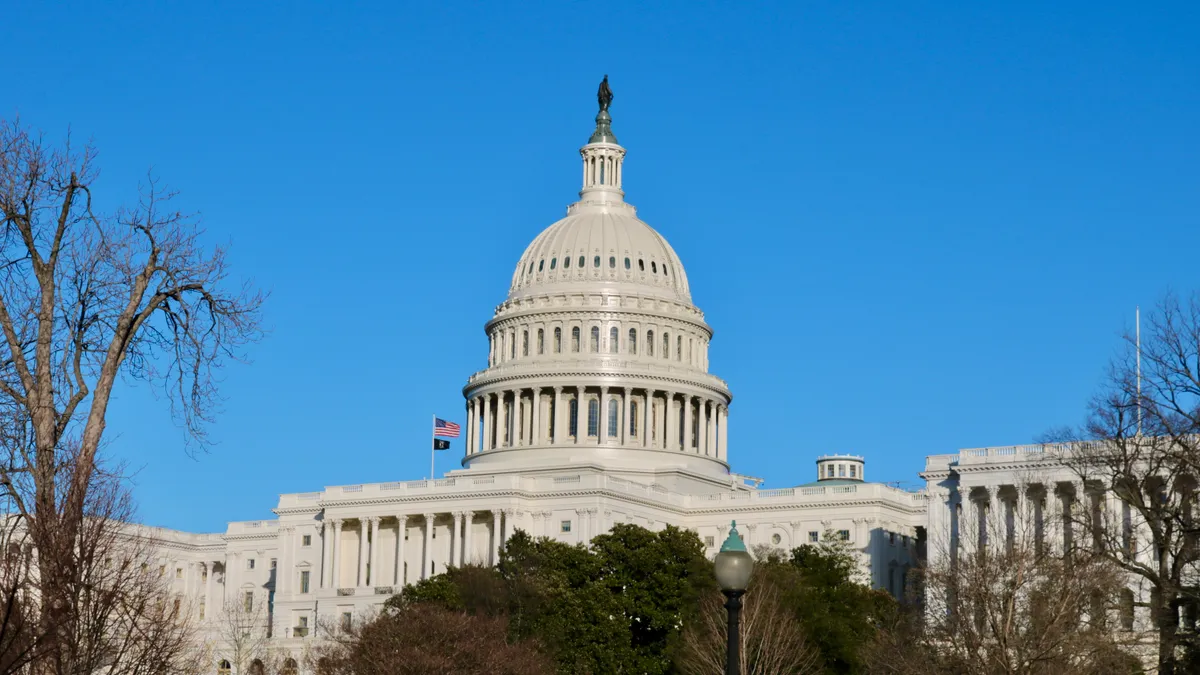Dive Brief:
- Rep. Raja Krishnamoorthi, D-Ill., chair of the House Subcommittee on Economic and Consumer Policy, has asked the FDA to provide information about the oversight of Medtronic's HeartWare Ventricular Assist Device (HVAD) system, which racked up numerous recalls and thousands of injury and death reports before being pulled from the market.
- The request comes just over nine months after Medtronic pulled the HVAD system off the market following three Class I recalls in the first half of 2021 and data showing the device was riskier to use than others. In a letter to FDA Commissioner Robert Califf, Krishnamoorthi criticized the agency's "slow action, over multiple administrations" and wrote the "agency failed to protect consumers from the dangerous HVAD System."
- Among the information requested is whether the FDA took regulatory action following a 2014 warning letter and whether the agency is changing protocols to ensure that patients are notified of warning letters. Krishnamoorthi requested answers by April 5. An FDA official said in an emailed statement that the agency will "respond directly to the Congressman."
Dive Insight:
Medtronic's HVAD device — acquired in the medtech giant's $1.1 billion purchase of HeartWare International in 2016 — helped patients suffering from heart failure pump blood through their bodies.
The device received premarket approval in 2012, and immediately the system had problems, requiring over a dozen recalls since its release. Problems with the system have ranged from devices failing to restart to the company needing to update instructions for use.
Between November 2012 and April 2021, the device had 20,470 injury reports and 3,390 death reports made in the FDA's Manufacturer and User Facility Device Experience database, according to data provided to MedTech Dive last year by watchdog ECRI.
In 2021 alone, the system had three Class I recalls that were associated with at least 15 deaths, according to the FDA.
"FDA is charged with ensuring patient access to safe, effective, and high-quality medical devices, but over multiple administrations the agency failed to protect consumers from the dangerous HVAD System," Krishnamoorthi wrote in the March 22 letter. "FDA must take a more proactive role in its regulation of devices that have been the subject of Warning Letters and Class I recalls, and in its communication of product defects to other agencies responsible for patient health."
The FDA is continuing to work with Medtronic to ensure that "all deficiencies are resolved," according to the FDA's statement, and it is working with Abbott Laboratories to make sure that there is an adequate supply of the similar HeartMate 3 device for patients.
"The FDA's decisions are intended to be patient-centric with the health and safety of device users as our highest priority," the official said in the statement. "The agency is committed to improving patient engagement, increasing transparency around the FDA's regulatory actions and postmarket data to help better inform patients, and working with firms to ensure they are communicating medical device recalls to patients and health care providers."
Krishnamoorthi noted the system's history of safety problems, writing that despite a 2014 warning letter to HeartWare, the FDA "failed to seize devices, stop HeartWare from selling them, or assess monetary penalties against HeartWare after the 2014 violations and despite continuing violations."
The House subcommittee chair also said that the FDA "knew the device was dangerous" but did not act even after continuing recalls and device failures.
"Despite this troubling history, FDA never directly notified other stakeholder federal agencies of the life-threatening problems with the HVAD System before the device was recalled," Krishnamoorthi wrote. "Instead, the agency simply added the Warning Letter to an online database containing thousands of other letters, as required."
Ultimately, Medtronic pulled the system from the market in June 2021, and the company coordinated with the agency and Abbott to ensure that patients were able to transition to Abbott's similar device.
Krishnamoorthi asked the agency to answer three questions by April 5:
- What regulatory actions, if any, did FDA contemplate in the years after the 2014 Warning Letter, and why did the agency not believe further action was warranted?
- What steps, if any, is FDA taking to revise its protocols to ensure that other agencies responsible for patient care are directly notified of agency Warning Letters and other critical device defects?
- What steps, if any, is FDA taking to revise its protocols to ensure that doctors and patients are directly notified of agency Warning Letters and other critical device defects?
One point highlighted by Krishnamoorthi was that the Centers for Medicare and Medicaid Services and the Department of Veterans Affairs "spent millions of taxpayer dollars to implant heart patients with a device that FDA officials knew may not be safe," citing a ProPublica report.
Krishnamoorthi's letter comes after the FDA has been criticized for high-profile recalls and product safety problems over the last several years, including recalls of surgical staplers and Allergan breast implants and numerous problems with Bayer's Essure birth control device.
The agency recently held two public meetings to examine the medical device recall process. Critics of the current system have consistently pointed to problems like outdated recall communication and tracking processes, lack of patient communication and lack of enforcement when recalls are not handled correctly.
The issues, experts argue, can lead to patients not being notified about recalls or safety risks of devices, and they can even result in recalled devices being implanted into patients.











